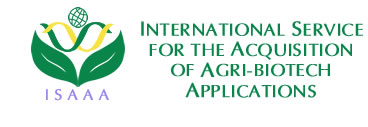ISAAA Statement on Socio-Economic Considerations
4-17 December 2016: 8th meeting of the Conference of the Parties serving as the meeting of the Parties to the Cartagena Protocol on Biosafety (COP-MOP 8), Cancun, Mexico.
Thank you Madam Chair.
I speak on behalf of the International Service for the Acquisition of Agribiotech Applications (ISAAA).
Madam Chair, ISAAA is in support of the revised framework for conceptual clarity of the Socio Economics Consideration offered by AHTEG in the context of Article 26 of the Cartagena Protocol on Biosafety. However, the conceptual clarity needs to be further developed to offer clear, transparent and non-discriminatory socio economic considerations based on science and field level evidence. ISAAA believes that socio-economic considerations are crucial since generation of new technologies and their adoption impact public research so as to offer tremendous benefits to producers and users.
ISAAA reiterates that socio-economic considerations should be based on case-by-case basis i.e. only if impacts of the environment or health do arise by the use of a LMO, and not a blanket statement as country situation and impact varies. They should be consistent with other international obligations such as environmental, human rights and trade agreements. ISAAA recommends that the elements of socio-economic considerations should be taken into account include impact on stakeholders’ such as farmers and consumers including indigenous and local communities incomes and welfare, and international trade, effects on food safety and security and be consistent with national and local regulatory frameworks and policies.
Socio Economics considerations is distinct from risk assessment that contributes to the decision making process of LMOs. Hence, if socio-economic considerations are taken into account, it should be based on the results of risk assessment and may be carried out consecutively after risk assessment to assess the positive and negative impacts of LMOs on conservation and sustainable use of biological diversity.
Thank you Madam Chair


